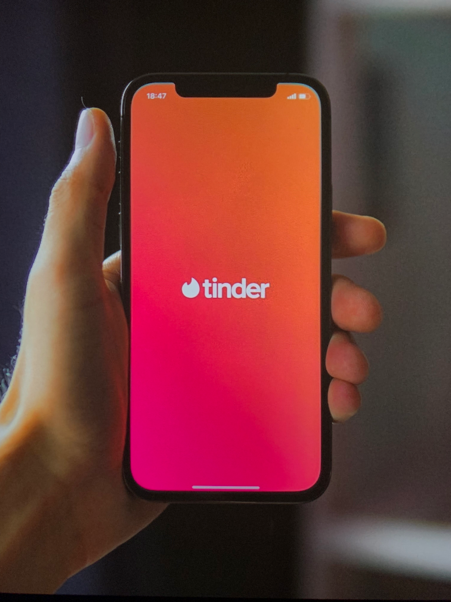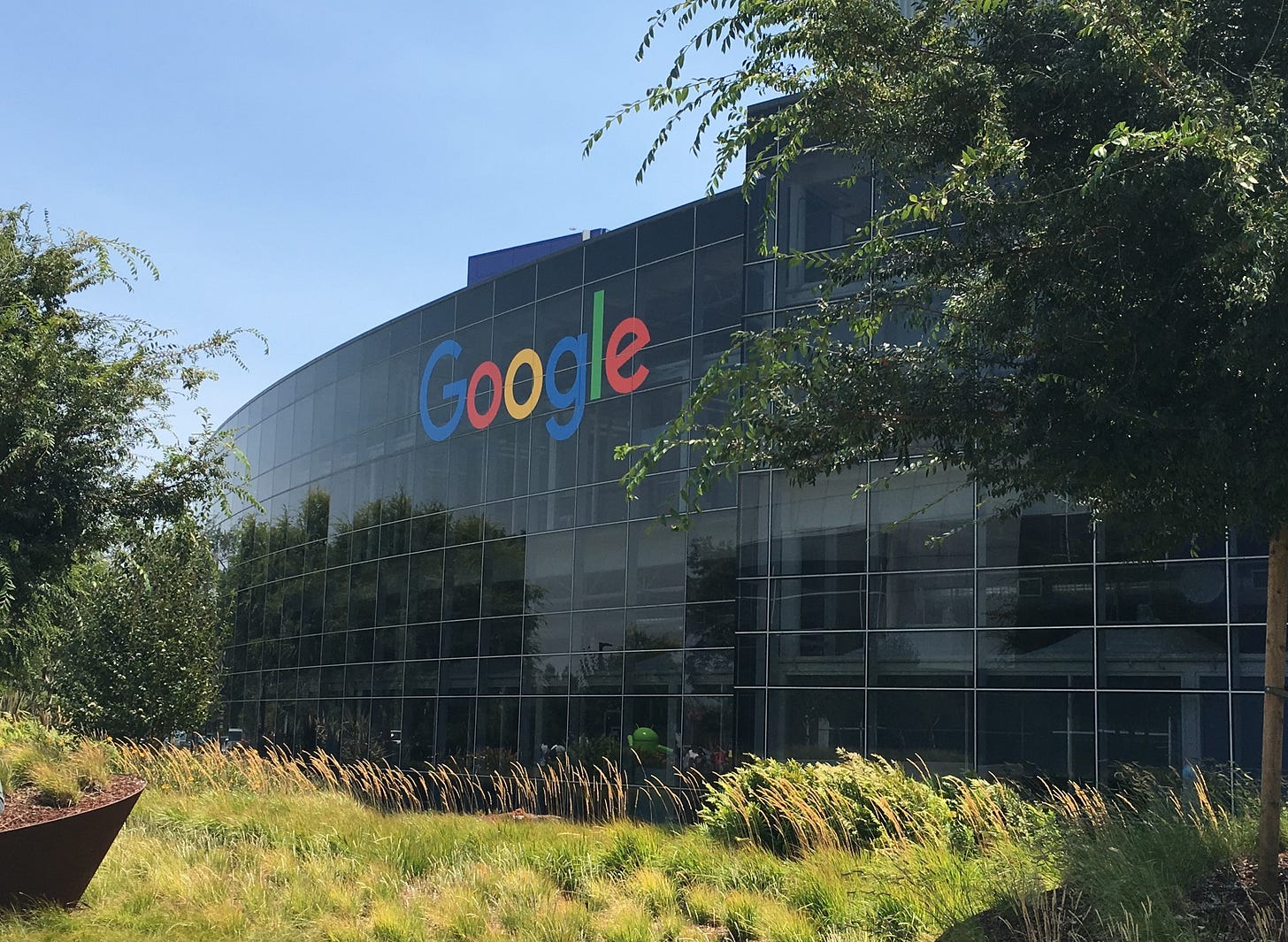News Round-Up: Gates Reverses on Climate Doom, Dating Apps Enable Tracing, and School Violence in Germany
Every week, the editorial team of Freedom Research compiles a round-up of news that caught our eye, or what felt like under-reported aspects of news deserving more attention.
Over the past week, the following topics attracted our attention:
Bill Gates Now Believes Climate Change Is Not the End of Civilization
Warning: Dating Apps Enable People To Be Tracked
USA: States Demand Age Verification Online; California Also Wants AI Conversations Monitored
School Violence in Germany: Immigrant-Background Children Attack Native Germans
US Age Verification Laws Force Google Play Store Checks
Bill Gates Now Believes Climate Change Is Not the End of Civilization
Bill Gates, the billionaire founder of the software company Microsoft and well-known climate change activist, has somewhat changed his view and now says that it is more important to look at how people are coping than to fight climate change. “Although climate change will have serious consequences – particularly for people in the poorest countries – it will not lead to humanity’s demise,” wrote the billionaire Bill Gates, founder of the software company Microsoft, in his latest blog post, published ahead of the next UN climate conference, COP30, which begins in Brazil in November.
Gates is a well-known climate change activist who has used his wealth and influence to guide and support the fight against climate change. He has also financed some of the most ambitious ideas for preventing global warming. For example, among the projects he has funded to combat climate change is a company that wants to reflect sunlight back into space by releasing sulfate aerosols into the air. He is also an early investor in a company that captures CO2 from the air and then turns it into stone. This company, called Climeworks, was one of those that received a billion dollars from the US government in 2023 to develop its projects, which shows that for investors, this is by no means a charitable project. However, the Trump administration has now suspended funding for these projects.
Gates is also quoted as saying that climate change “is one of the greatest challenges humanity has ever faced – greater than landing on the moon, greater than eradicating smallpox, even greater than putting a computer on every desk.”
In his latest blog post, however, Gates is shifting his view, at least to some extent. “But remember that climate change is not the biggest threat to the lives and livelihoods of people in poor countries, and it won’t be in the future,” he wrote. He added that temperature is not actually the best way to measure success in combating climate change. “The global temperature doesn’t tell us anything about the quality of people’s lives,” he explained.
Regarding temperatures, Gates also noted the long-established fact that cold weather is responsible for significantly more deaths each year than hot weather. According to him, about 500,000 people die each year due to hot weather. “Despite the impression you’d get from the news, though, the number has been decreasing for some time, chiefly because more people can afford air conditioners. And, surprisingly, excessive cold is far deadlier, killing nearly ten times more people every year than heat does,” he said.

According to Gates, how people cope is much more important than the climate. He says that people around the world are in very unequal situations, and the real question could be, for example, if drought has destroyed the harvest, will people be able to buy food? He points out that the situation in Switzerland, for example, is understandably different from that in South Sudan.
“This inequity is the reason our climate strategies need to prioritize human welfare. This may seem obvious – who could be against improving people’s lives? – but sometimes human welfare takes a backseat to lowering emissions, with bad consequences,” Gates wrote. “For example, a few years ago, the government of one low-income country set out to cut emissions by banning synthetic fertilizers. Farmers’ yields plummeted, there was much less food available, and prices skyrocketed. The country was hit by a crisis because the government valued reducing emissions above other important things,” he added. Gates was apparently referring to the actions of the Sri Lankan government in 2021, which led to widespread unrest in the country.
Gates also criticized the lack of funding for fossil fuel projects in poorer countries. “For example, multilateral lenders have been pushed by wealthy shareholders to stop financing fossil fuel projects, with the hope of limiting emissions by leaving oil, gas, and coal in the ground. This pressure has had almost no impact on global emissions, but it has made it harder for low-income countries to get low-interest loans for power plants that would bring reliable electricity to their homes, schools, and health clinics,” he wrote.
Gates devoted a large part of his post to energy. “From the standpoint of improving lives, using more energy is a good thing, because it’s so closely correlated with economic growth,” he wrote, while acknowledging that we do not have the means to provide us with more energy than we currently have without increasing CO2 emissions. “But we will have the tools we need if we focus on innovation,” he wrote.
In his post, Gates also addressed criticism of his fondness for private jets and luxury yachts. “I know that some climate advocates will disagree with me, call me a hypocrite because of my own carbon footprint (which I fully offset with legitimate carbon credits), or see this as a sneaky way of arguing that we shouldn’t take climate change seriously,” he wrote. “To be clear: climate change is a very important problem. It needs to be solved, along with other problems like malaria and malnutrition,” he added.
Warning: Dating Apps Enable People To Be Tracked
There has been an increase in the number of websites claiming to identify “unfaithful partners” by revealing Tinder or other dating app profiles and locations from one online photo. Critics warn dating apps enable tracking and stalking, writes Biometric Update.
Platforms like Cheaterbuster and CheatEye claim to be able to reveal a person’s Tinder profile and even their location using just one photo. The services are said to have originated with suspicious partners who wanted to verify their partner’s trustworthiness. Now, however, it has become a form of facial recognition available to everyone, powerful enough to expose anyone who has ever shared their photo online multiple times.
According to Tinder, the company has no connection with Cheaterbuster or CheatEye, and their activities violate Tinder’s rules. Nevertheless, these tools remain active, marketed as harmless entertainment, often encouraging users who would otherwise avoid such invasive technologies to sign up.
However, behind this new trend lies an older and much deeper problem. For years, companies have been collecting billions of profile pictures and creating searchable biometric databases. These large, unregulated databases form a new basis for how people can search for others, including their partners. Cheaterbuster and CheatEye rely on this infrastructure, and their method is simple and effective: the user uploads a photo, which is then compared to large image collections. The sites then try to match the results with dating app profiles. The websites advertise that they can show where and when a profile was last active. Cheaterbuster markets facial recognition and rich search criteria; CheatEye markets real-time access to Tinder. In any case, such websites have a wide reach as the weaknesses of dating apps are also widespread.
Popular dating apps have, of course, been criticized before, with Tinder, Bumble, Hinge, OKCupid, Badoo, and Match accused of disclosing minor details that could reveal more than intended. A 2024 research article analyzed fifteen such apps and found that six of them leaked enough location or proximity data to deduce the exact location of users. And even if companies hide a certain distance, the order of presented profiles can still reveal it. When a “cheating partner” search service matches a face with a name, it is already possible to estimate where a person lives or works.
However, more and more services are competing in this grey market segment. In addition to those already mentioned, one of the best known is PimEyes, which allows you to find out where the face you are looking for appears on the web, based on an uploaded image. But there are also newer entrants, such as FaceCheck ID and ProFaceFinder, which advertise the ability to match photos with dating or social media profiles, and some, such as SwindlerBuster, RevealCheaters, and iFindCheaters, offer variations on the same model, often reselling results from larger facial recognition services. OopsBusted advertises itself to “suspicious lovers” and claims to use advanced facial recognition and machine learning to scan major dating apps to find matching profiles. But there is also Clearview AI, which collects photos from social media and public websites to sell them to law enforcement agencies. This led to a lawsuit under Illinois’ Biometric Information Privacy Act, forcing Clearview to restrict sales to the private sector. European and UK authorities later imposed fines of several million dollars, but the databases remain untouched.

Critics say that the ability to identify someone based on their dating app profile photo can lead to harassment, extortion, and even job loss or physical danger for many people – for example, LGB people or those seeking alternative relationships, who often rely on anonymity when looking for a partner. However, since dating apps rank people based on their proximity, anyone who has found a name to go with a photo can turn the system into an unofficial surveillance tool. According to privacy advocates, these tools make intimate relationships trackable, and “find your partner” services are the perfect surveillance tools, giving everyone powerful search capabilities. Eva Galperin, director of cyber security at the Electronic Frontier Foundation, has also warned that such technologies allow intimate partners to be controlled and monitored. This is no longer a theoretical risk, but a consumer product in circulation.
The combination of public facial databases, dating app leaks, and aggressive marketing has created a perfect system where each part reinforces the other, with billions of facial images providing raw data that can be searched. Dating platforms provide contextual data that links faces to locations, and hired influencers advertise the results under the guise of “relationship accountability.” The result is a parallel industry that treats people’s romantic lives as open data. The consequences, however, are much greater than just embarrassment. The danger lies not only in who currently has access to the data, but also in the fact that it remains searchable for an indefinite period of time. Once a face has been entered into these databases, it can be matched again and again. Cheaterbuster and CheatEye, the most visible examples of this new market, illustrate how easily massive facial recognition can be repackaged for entertainment and how quickly it spreads when presented as a tool for truth or security.
But despite all the risks, dating platforms themselves have started using facial recognition, saying it is for safety reasons. For example, Tinder requires that new users in California verify their identity with a short video of themselves. The app then creates a supposedly encrypted face map, which the company says helps prevent the use of bots and identity theft. Bumble offers, again on a voluntary basis, identity verification based on an official ID and a photo taken by the user. The purpose of these systems is to verify authenticity, but they also create large repositories of biometric data that, in the event of a breach or legal access, could easily fuel the surveillance ecosystem that companies claim to be fighting against.
USA: States Demand Age Verification Online; California Also Wants AI Conversations Monitored
The state of Texas has passed a law requiring tech giants to verify the age of users and set restrictions for young people. California, meanwhile, is imposing an obligation to monitor conversations between humans and artificial intelligence in order to detect suicidal thoughts.
Texas’ App Store Accountability Act (SB2420) will take effect on January 1, 2026, and mandates online age verification and restrictions for users under the age of 18. Tech giants Apple and Google have confirmed that they will comply with Texas’ new age verification law, but warn that user privacy will have to be sacrificed in order to meet the requirement, writes Reclaim The Net.
In its developer newsletter, Apple announced: “Beginning January 1, 2026, a new state law in Texas — SB2420 — introduces age assurance requirements for app marketplaces and developers.” Apple added that while the safety of children online needs to be improved, Texas’s current law will affect the privacy of all users. Specifically, the state’s new law forces app stores and app developers to collect users’ personal and other private data. This applies to any app download, even for simple apps such as weather or sports news.
To make it a little easier for developers to comply with the rules, Apple plans to update its existing Declared Age Range API and create new tools. According to Apple, these changes are necessary to comply with the law while minimizing the disclosure of user data.
Google has taken a similar approach and has already launched a beta version of its Play Age Signals API. This is a system through which apps can obtain information about users’ age ranges, supervision status, and other relevant data. Initially, however, Google will only implement the Play Age Signals API in US states where age verification is mandatory.

Google has previously written that a Utah law coming into effect on May 3, 2026, will require data to be shared. “The bill requires app stores to share if a user is a kid or teenager with all app developers (effectively millions of individual companies) without parental consent or rules on how the information is used,” the company warned. “That raises real privacy and safety risks, like the potential for bad actors to sell the data or use it for other nefarious purposes.” Google also emphasized that simpler apps, such as weather apps, should not need access to user age data.
Both Apple and Google already offer optional parental control tools. However, the new requirements would make age assurance mandatory and require age verification before downloading and using any app, even for content that is not age-restricted.
In addition to the states already mentioned, California has also approved several laws that expand government oversight of online platforms and impose requirements on technology companies, particularly social media and artificial intelligence companies. According to California Governor Gavin Newsom, this is, of course, about protecting children online, explaining: “Without real safeguards, technology can exploit, mislead, and endanger our children. We have seen truly horrific and tragic examples of young people harmed by unregulated technology, and we will not stand by and watch as companies continue to operate without the necessary restrictions and accountability.” The governor believes that the US can continue to lead the artificial intelligence sector, but do so responsibly, protecting the children at every step.

More specifically, California has passed laws, the first of which (Assembly Bill 56) requires social media platforms to send users repeated mental health warning messages. These warnings, like cigarette pack labels, must appear when the platform is opened and then at regular intervals (e.g. after 3 hours of use and then every hour) to inform users about the effects of screen time. Supporters of the warning messages argued that the law was necessary to respond to the mental health emergency among young people. Critics, however, argue that it adds a government message to private platforms in a way that undermines user autonomy and treats teenagers as passive recipients of technology rather than individuals capable of making informed choices.
Another law (Senate Bill 243) deals with chatbots that mimic human conversation. Under this law, companies that develop or operate chatbots must monitor and supervise user conversations to detect signs of suicidal thoughts or self-harm. The law requires companies to submit annual summary statistics to the California Suicide Prevention Office, including how often such thoughts are detected and how often the chatbot itself raises related topics. To comply with this requirement, developers will likely have to monitor conversations between users and chatbots in real time. This, in turn, could normalize the monitoring of private conversations under the pretext of mental health intervention.

A third law (AB 1043) requires operating system providers to verify the age or date of birth of users, which app developers must request and use as “age signals.” Developers must ensure age-appropriate content or restrictions, such as limiting material that is inappropriate for minors. The measure is being promoted as a way to limit minors’ access to inappropriate material, but critics say it will lead to permanent digital tracking and monitoring linked to operating system identity data.
California officials, of course, call these laws another step toward digital security. Critics, however, say the real impact could be much broader, with increased government control over online communication, reduced privacy, and ultimately the normalization of government control over individuals’ use of technology.
In addition to Utah, Texas, and California, there are other states where age verification will soon come into force in one form or another, e.g. on July 1, 2026 in Louisiana. However, the first to introduce age verification was the state of Mississippi, which received permission from the U.S Supreme Court to do so. State law requires all websites, regardless of their content, to verify the age of new users, and “known minors” must have parental consent. The goal, as elsewhere, is to protect minors from harmful material circulating on the internet and from accessing such material. However, if a website fails to comply with age verification requirements, the state imposes significant fines – up to $10,000 (€8,500) per user.
As a result, the social media platform Bluesky, for example, has decided to simply block users located in the state of Mississippi. The company justified its decision by saying that it would have to monitor children and everyone else, collect and store user data, and identify users along with their age. Bluesky believes that the impact of the law goes far beyond child safety and is contrary to the values of decentralized technology. By requiring the web platform to verify the identity of each user, the state has established an identification system that makes it impossible to use the internet without being monitored. Bluesky believes that the law threatens not only privacy but also online anonymity and freedom of expression, especially for minorities or dissidents, who often can only share their opinions and information thanks to anonymity. Until the courts decide whether the law will remain in force, Bluesky is blocking access from Mississippi IP addresses. Visitors from that state will now see a message explaining the temporary restriction.
While such laws currently exist in a few states, many more are considering similar measures, and age verification initiatives are also gaining momentum at the federal level. Representatives from several states have put forward such proposals. According to Utah Senator Mike Lee, state oversight is necessary because “big tech companies have profited from app stores that give American and global children access to violent and sexual material, putting them at risk of encountering predators lurking online.”
Privacy advocates warn that forcing companies to collect and distribute personal data will expand government oversight and impose obligations on technology companies that could have serious repercussions if the information is misused or disclosed.
Yet US states are not the only ones where users have to prove their age online. Australia enacted the world’s first national social media age restriction law in November 2024, banning accounts for those under 16, starting December 10, 2025. Platforms must take reasonable steps to prevent underage access, with fines up to A$49.5 million for non-compliance. Many other countries have been inspired by Australia’s age verification law and are implementing or trying to introduce similar rules. New Zealand, for example, is considering obligations for social media companies to verify the age of their users and stipulate that only those aged 16 and over can create accounts. The aim is reportedly to protect young people from the harms of social media, such as violent content and cyberbullying, but also inappropriate content, exploitation, and social media addiction.
However, the most “prominent” controller and punisher in recent months has been the United Kingdom. The children’s protection and age assurance provision of the Online Safety Act came into force on July, 2025, and the country’s communications authority, Ofcom (The Office of Communications), is vigorously enforcing the law. The agency has the right to require web platforms to prevent minors from accessing harmful content, such as self-harm, suicide, eating disorders, and pornography. Websites that do not verify the age of their users can face fines of up to £18 million (approximately €21.3 million) or 10% of their global turnover, whichever is greater. At the same time, there are also initial reports from the UK on the consequences of the act, with age-verifying websites losing users and sites that completely ignore the law gaining new users at the same time.

The European Union does not want to be left behind either. European Commission President Ursula von der Leyen stated in a speech on September 10 that Europe is closely monitoring Australia’s approach, saying, “Our friends in Australia are pioneers in restricting social media.” According to von der Leyen, the EU has commissioned a panel of experts to advise on minors’ social media access, with a report due by the end of 2025. Meanwhile, the first trials of an age verification app are already underway in five European countries. There, users must confirm that they are of legal age via the EU age verification app using their eID, bank account, or passport. The application generates a digital confirmation that is sent to the website and proves that the user is of legal age. Websites and platforms must accept the application’s confirmation, for example by using a QR code or PIN code. The application is centralized and can be used on any website.
School Violence in Germany: Immigrant-Background Children Attack Native Germans
In many German schools with a high proportion of immigrant-background children, native German children have become the target of constant bullying and attacks. For example, this year, the police were called to Berlin schools more than 1,100 times, according to Remix News.
What happened to 10-year-old Emilia, a fifth-grade student at Tempelherren Elementary School in Berlin, is just one sad example of the wave of violence in German schools. In February of this year, Emilia was attacked and injured on school grounds four times.
She was threatened with a knife, pushed to the ground and kicked, and attacked with headbutts. She was left with bruises and scratches on her body after the attacks. In addition, she has faced verbal abused not only from her classmates, but also from students in other classes. Due to the constant attacks, Emilia now suffers from psychological disorders, including post-traumatic stress disorder.

Of the 323 students at the Tempelherren School in Berlin, only 110 speak German as their native language. The remaining 213, or 67% of the school’s students, have another language as their native tongue (i.e. they are children with immigrant backgrounds).
Emilia told the newspaper Bild about the violence at school, which affects not only her, but also other students on a daily basis. “Someone gets beaten up during every break,” she said.
Emilia’s parents have tried to protect and help their child in every way possible. The school principal has advised them to contact the police, which they did. However, the police closed the investigation because the attackers are under 14 years of age.
The language barrier has become a particular obstacle in attempts to resolve issues with the attackers’ parents. The parents of the other child often do not speak enough German and do not understand all said at the meetings – in this case, a sister of the boy who attacked the girl, attending a different secondary school in the neighborhood herself, had to translate the entire conversation.
Emilia’s parents have now published an open letter accusing the school and the police of inaction in resolving the problem and demanding decisive action from the school, including the presence of supervisors on school grounds.
However, the school’s spokesperson responded to Bild’s inquiry by saying that the incidents had been investigated, meetings had been held with the parents, and additional measures had been taken in accordance with school law and the principle of proportionality.
As with many other German children, changing schools is often the only way to escape such violence and bullying. Emilia’s parents now intend to do just that.
Yet the problem is much broader. Mass immigration and the influx of immigrant-background children into schools have contributed to increased violence in German schools. This year’s data for Berlin shows that by the beginning of October, the police had already been called to schools in the capital 1,129 times due to physical violence. Over the last five years, i.e. since 2020, the number of such incidents has increased. In 2020, there were a total of 1,043 incidents throughout the year.
US Age Verification Laws Force Google Play Store Checks
Google Play Store now requires age verification in the US. After implementing an age verification system on YouTube, the tech giant has apparently responded to age verification requirements at the app store level, writes Biometric Update.
Android Authority shared screenshots showing options: government ID photo, selfie age estimate, credit card, or email verification. The latter is provided by UK-based company Verifymy, which has been praised as “the fastest, easiest, and most privacy-preserving way to verify your age online.” Facial age estimation (FAE) option indicates that Google “works with a company that specializes in age estimation,” but does not name it. Verifymy does offer biometric facial age assessment, but Google has also developed its own FAE technology, which is listed in the Age Check Certification Scheme (ACCS) registry of approved providers.
Biometric facial age assessment is allegedly “highly effective” when used correctly but remains in early-stage development. But a new NPJ Biomedical Innovations study tested age estimation via electrocardiogram (ECG) signals from smartwatches and deemed them a promising alternative “due to their age-dependent characteristics”. Prior studies used hospital ECGs, so “researchers created a smartwatch dataset from 220 varied-age individuals, achieving a mean absolute error (MAE) of 2.93 years, outperforming clinical ECG-based studies”. Researchers concluded: “Accuracy peaked during adolescence, when ECG changes are most pronounced” and stated they conducted binary age classification (13–21 years), reaching 93–96% accuracy. The authors say the results highlight smartwatch ECG’s potential for accurate, privacy-respecting age estimation.
So far, at least Texas, Louisiana, and Utah have passed age verification laws in one form or another. Although Google has criticized these laws, the current app store decision shows that the company seems to expect age verification laws to continue spreading across the United States.



Gates - With his 'insane experiments' is likely to cause the next ICE AGE or perhaps a man-made disease that wipes out mankind.
He should not be trusted to interfere with our fragile planet!
Unjabbed Mick (UK Patriot) We'll live longer!